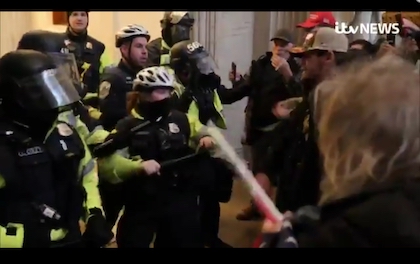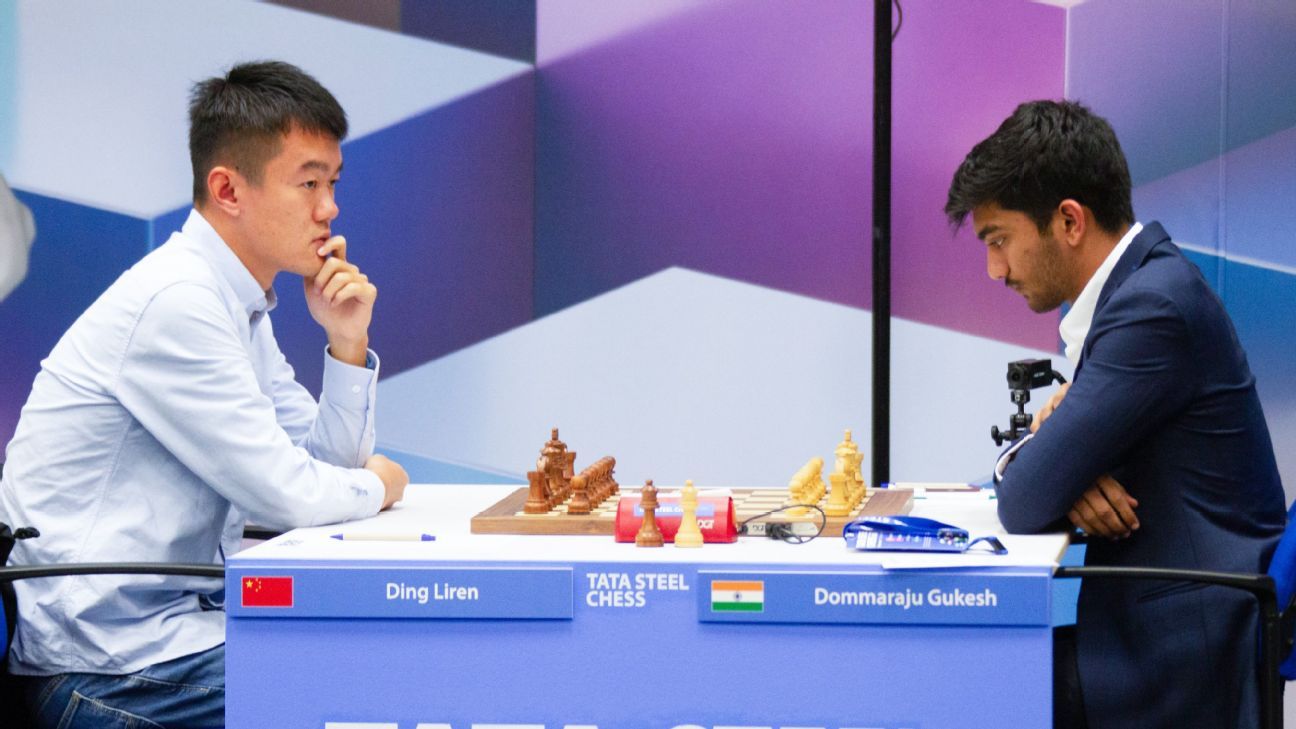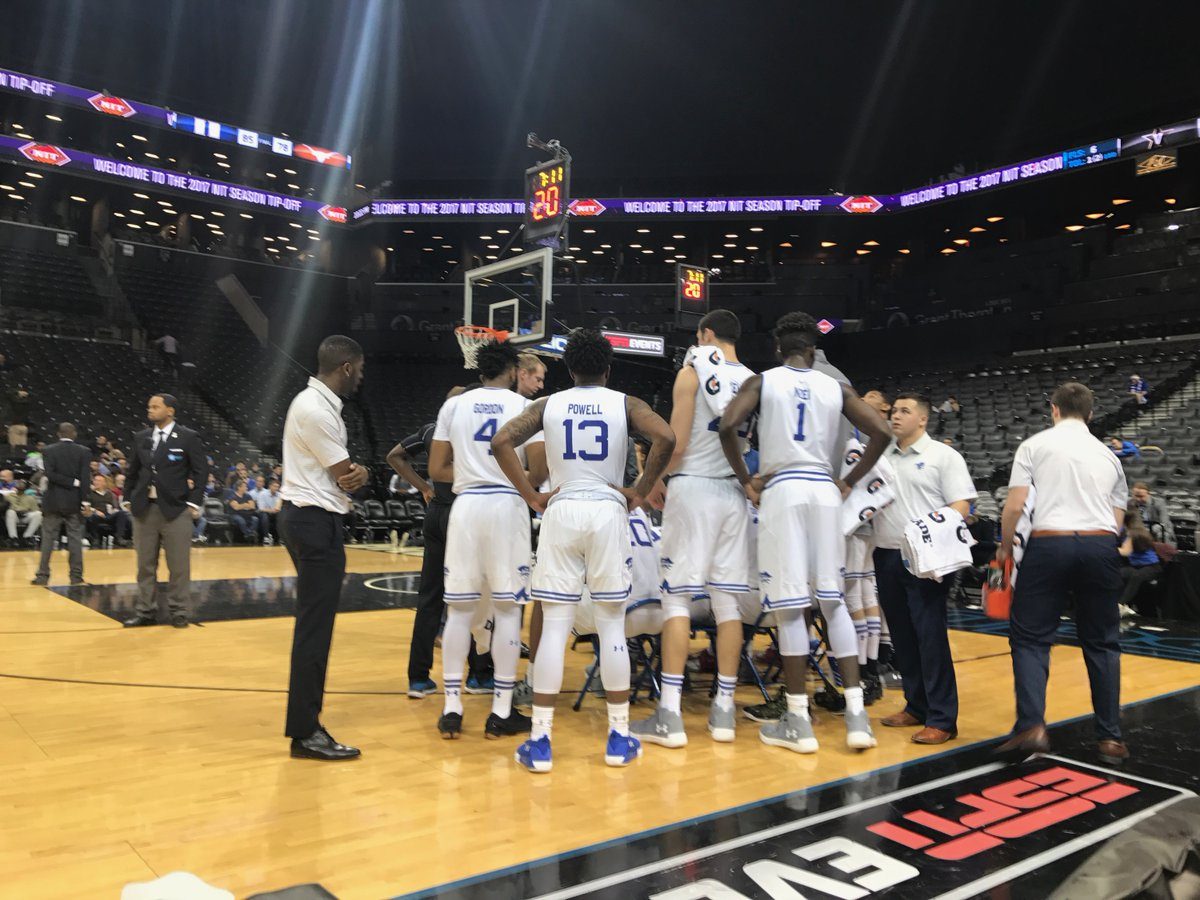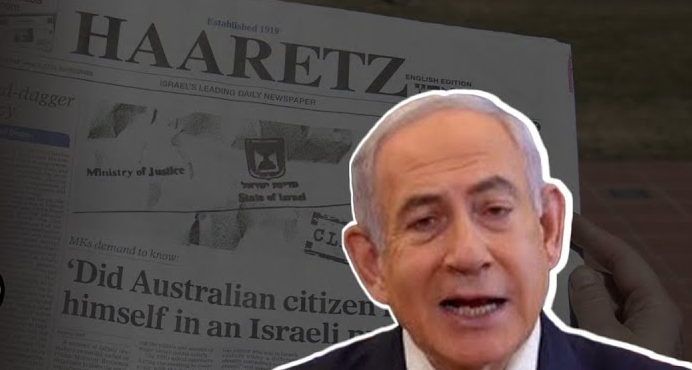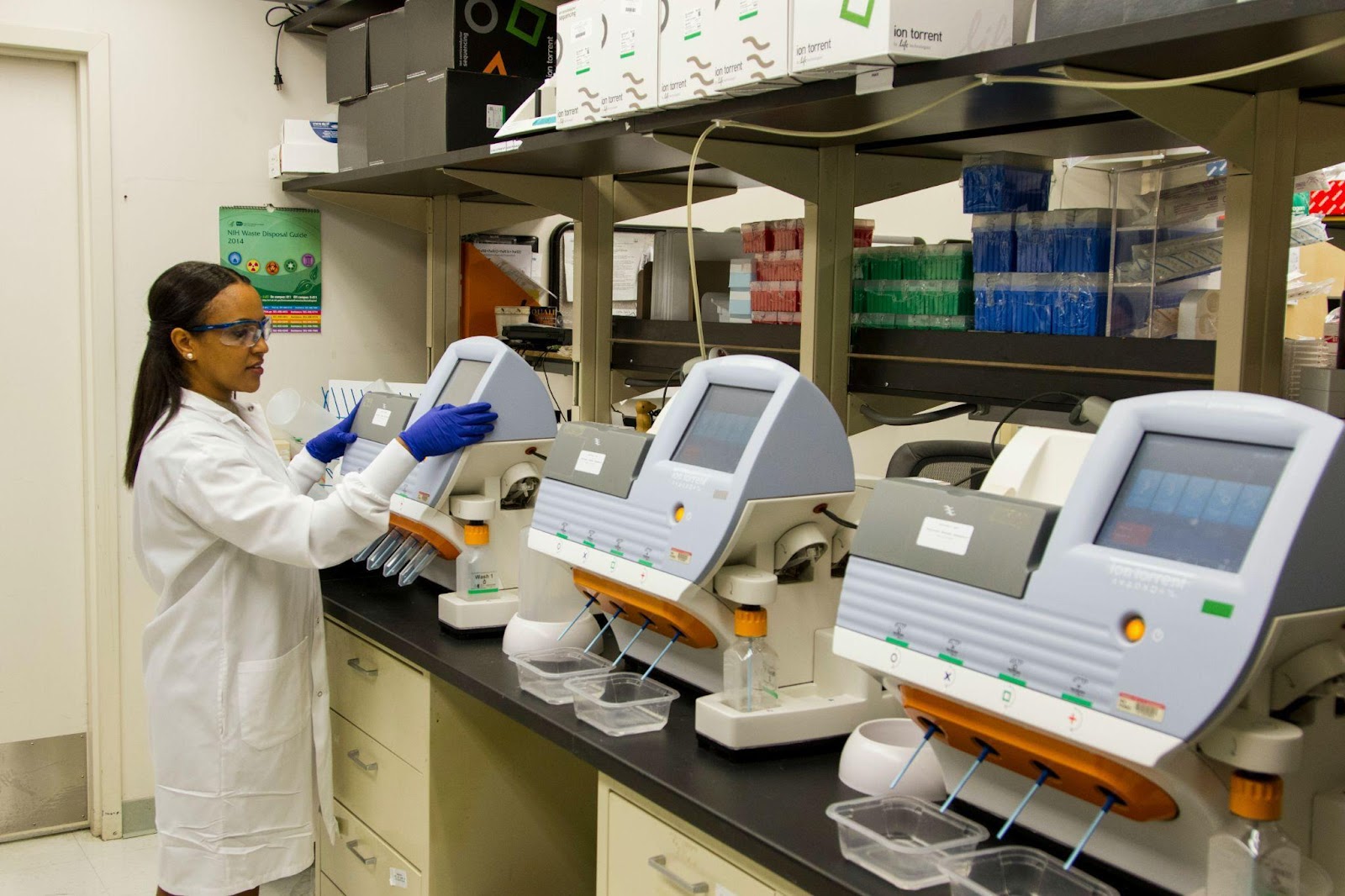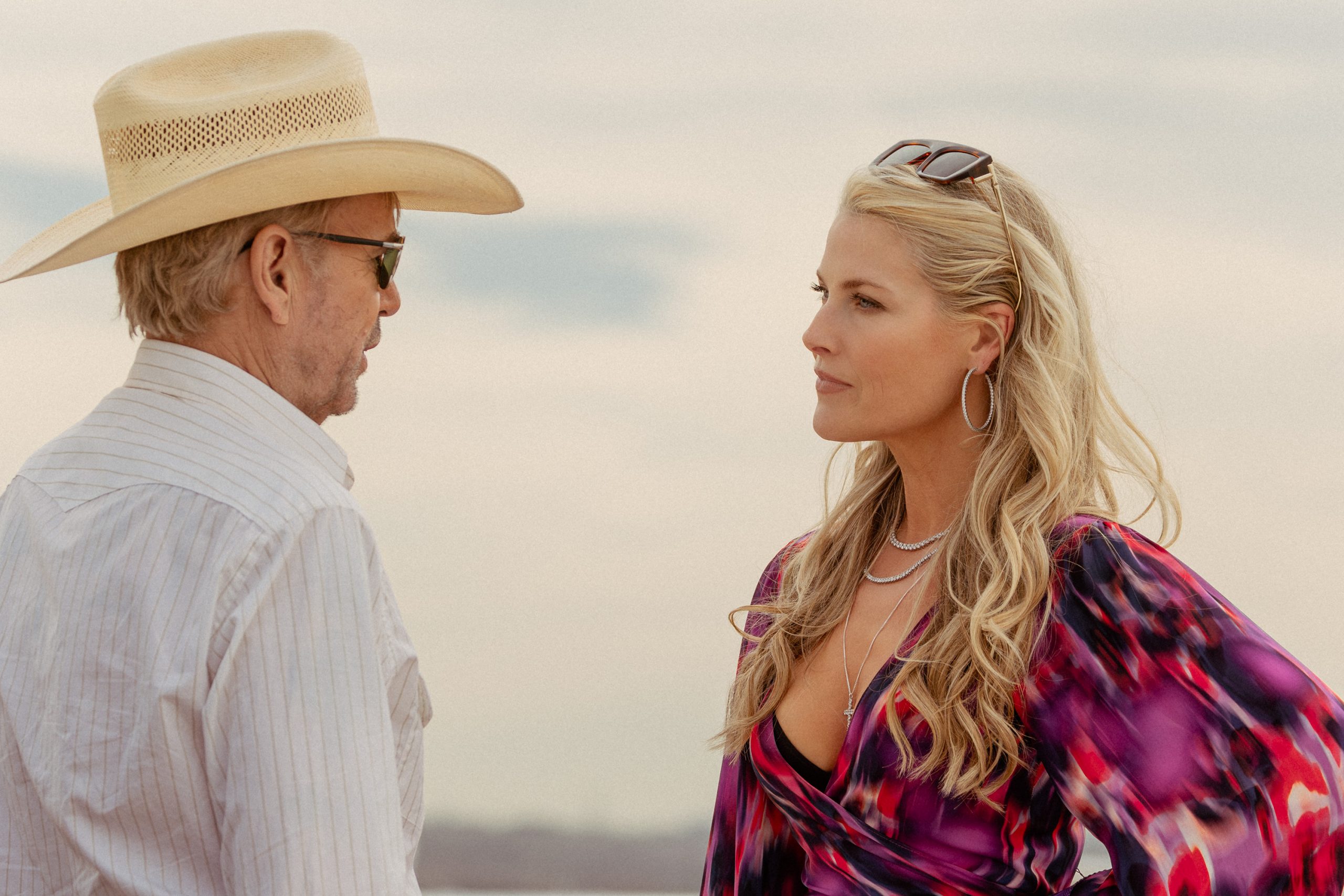Capitol invasion. Screenshot Itv News via Twitter.
Like many of you I watched yesterday as rioters and terrorists desecrated the United States Capitol building. I was not shocked. That such violent opposition to U.S. democratic institutions would manifest after years of sustained assault should not be shocking.
The images from January 6 should not be considered an anomaly. We should resist the urge to label such acts as un-American and we should not move too quickly towards an overused rhetoric of healing. If this country is to survive the next few years, let alone thrive, we will have to face the aspects of our American identity that make so many people feel it is acceptable to deny reality — the reality of election results, the reality of a pandemic, and the reality of deeply rooted racism manifest in the care with which law enforcement treated (mostly) White men rampaging through the halls of the Capitol.
I was born in Washington D.C. not far from the U.S. Capitol Building. I grew up visiting the monuments on the National Mall and engaging with a whitewashed version of this great country’s truly complicated history. As an 18-year-old, just after my freshman year of college, I was fortunate enough to intern in the United States Senate alongside my college roommate and good friend Pete Buttigieg.
I’ll never forget walking through the Rotunda and down the halls of the Capitol Building with him, listening to him marvel at the history made and the idea that however imperfect the process, there was a pathway towards progress and greater understanding. I remember sitting on the Senate floor to watch proceedings or suddenly finding myself the only other person in the room as then Senate Majority Leader Tom Daschle conferred with the late Senator John McCain about a prescription drug benefits bill. But what I remember most was how respect for the democratic process served as a guiding principle for all of those who worked in and visited that building.
To speak only of these moments is to willfully forget that the forced labor of generations of enslaved African people cut and laid the stones that built the Capitol, and to gloss over the fact that generations of Americans sat in its hallowed chambers to vote against equality and freedom for all Americans. To react with shock and horror to yesterday’s pictures of Confederate flags waved by destructive thugs in muddy hiking boots and soiled jeans is to forget that Confederate flags have accompanied the suited Senators and Representatives from so many States for so many years. That understanding of America has coexisted with our search for equality, freedom, justice and truth.
The events of January 6 are not a departure for America but a reminder that the struggle for the soul of this great nation is real and ongoing. It can manifest as Americans Raphael Warnock and John Ossoff making history as the first Black and Jewish men to be elected to the Senate from Georgia (with a huge assist from Stacey Abrams) on the same day that Americans tried to overturn legitimate election results. It can manifest as peaceful Black Lives Matter protests pushing for all Americans to be treated fairly by law enforcement just as it can manifest as hooligans attacking democracy itself when they feel like they have not been treated preferentially.
Yesterday’s events are not, as some commentators have suggested, reminiscent of something you would see in Africa. They are American and we should own them. It is through accepting responsibility for all of our American identities that we can chart a course towards the healing and unity we so desperately seek.
In Solidarity,
Uzodinma Iweala, M.D.
Chief Executive Officer, The Africa Center

